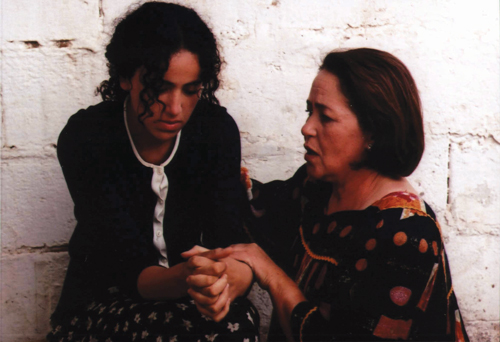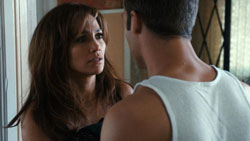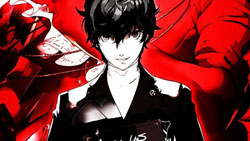Imagine living in constant fear that the ones who will rob your house and potentially kill you aren’t foreign terrorists or some enemy of the state but your neighbors from next door. This is the fear that characters in the film Rachida f eel o n a d aily b asis. A t one point, school teacher Rachida (Ibtissem Djouadi) even exclaims, “I’m in exile in my own country!”
Rachidawas screened in Pollak Theatre as the third movie in this year’s Provost Film Series. It is set during the civil war that affected the country in the 1990’s. If you were like me, you probably weren’t even aware that there was such a country called Algeria back then (if it’s for the same reason as me, then you were too young to know or care).
Dr. Thomas Pearson, Provost and Vice President for Academic Affairs, gave a quick history lesson about the Algerian civil war before the movie started. However, while it was very informative and gave good context for the film, it didn’t make the audience resonate with the Algerians nearly as much as the movie did.
Rachidabegins w ith R achida, a teacher, on her way to school. However, as she heads toward work, she is pressured into bringing a bomb into the school by former students of hers who have joined the revolting Algerians. When she refuses, they shoot her and leave Rachida for dead.
Right off the bat the audience is shown the torment the citizens felt during this civil war. Rachida makes a recovery physically, but the psychological scars still remain. Rachida moves to the countryside with her mother and begins teaching at a school there. However, the countryside is just as bad, if not even worse, than the city.
The terrorists are also in the countryside, and unlike the city, there isn’t any law enforcement to prevent them from doing what they want. As such, the terrorists rob, kidnap and even kill the citizens of the town with no remorse. I really can’t stress that since this was not a documentary, you’re led to believe that this is a piece of historical fiction.
For all I knew, the movie could have ended very dark and graphically (but that’s not to say it didn’t).
I was surprised that the movie ended where it did. Director and writer Yamina Bachir really wanted this to be symbolic of what his crew believed was necessary for Algeria to recover after its horrifying civil war. “It is very real, the fear is all over it,” said Dr. Saliba
Sarsar, professor of political science and Associate Vice President for Global Initiatives. He was also one of the guest speakers for the Q&A following the film screening. Sarsar also said that the ending was meant to tell the audience that educating youths is what was necessary for the country to recover. “We see some hope through education,” said Sarsar. I thought the ending was a bit of a far stretch.
However, despite that, the film was a grim and disturbing tale of terror. The makeup on Rachida while she was in the hospital recovering was done with expertise. She really did look like she was on the verge of death. I have to give props to makeup designer Mahmia Aarar.
The cinematography was also captured nicley by Mustafa Ben Mihoub. Bachir and Mihoub really knew what they were doing with a lot of these shots.
“There were visually striking, beautiful moments. I wished they lasted a bit longer,” said Andrew Demirjian, specialist professor of communication, who attended the screening.
One such scene was in the hospital, when Rachida’s mother is waiting outside, and she was inside the window frame. “It was like she was in her own prison,” said Demirjian.
The acting was also top notch. The movie, surprisingly, did not have too much dialogue, with characters only talking during crucial moments. At least half of the characters thoughts are expressed in their body language.
There was no need for the scene explaining that Rachida still had mental scars after her near fatal experience. Her body movements, such as cowering in fear in the corner of her room after the incident where she was shot, was enough.
As usual with the film screenings at the University, a question and answer session was opened up to the audience. In addition to Sarsar, Dr. Nancy Mezey, the Director for Institute of Global Understanding, was the other guest speaker who proceeded to answer questions from the audience.
It was here that a significant criticism was brought up. Although the film did a fantastic job bringing the audience into Algeria during this time of crisis, it did not take the time to explain why Algeria was in a civil war in the first place.
If Pearson hadn’t given the context of the movie beforehand, many would not have realized there was a civil war going on at all until a half hour in.
While the film has its downs, they are heavily outweighed by the ups. Rachidais not just a story about the terror the Algerian citizens felt during the civil war. It also educates the audience that this is what any country will experience in a civil war.
“This film says so much more about what is going on in the world,” Mezey said during the Q& A. I agree with Mezey. Anyone who wants to see a civil war from the civilians’ perspective should see this movie if they ever get the chance to. Everyone can learn something when they see Rachida, which they should.
If they can’t, they should do the next best thing and try to make it to the fourth and final film in the Provost Film Series, Under the Bombs, on April 5 in Pollak Theatre.
IMAGE TAKEN from kairosfilm.de



